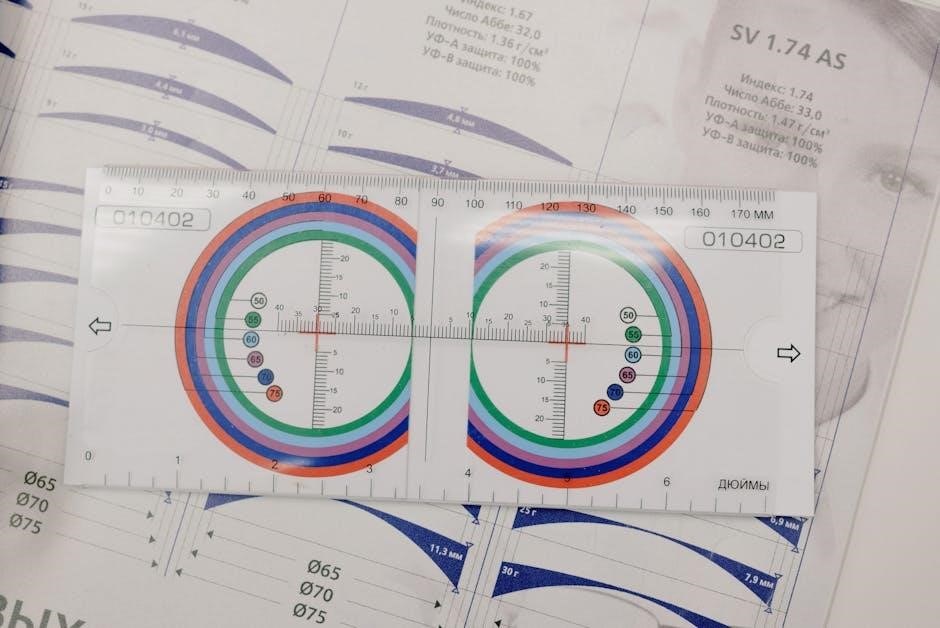LAUSD Instructional Aides are dedicated professionals supporting teachers and students in achieving educational goals. They assist in implementing instructional programs, reinforcing learning objectives, and creating a safe, engaging environment for all students.
1;1 Overview of the Role
An Instructional Aide plays a crucial role in supporting the educational process within the Los Angeles Unified School District (LAUSD). These professionals work closely with teachers and other certified staff to implement instructional programs, reinforce learning objectives, and provide individualized support to students. Their responsibilities include assisting with classroom activities, preparing instructional materials, and helping students with specific needs. Instructional Aides also contribute to creating a safe and inclusive learning environment, ensuring that all students can engage effectively with the curriculum. While their roles may vary depending on the school and student population, their primary focus is to enhance the educational experience and help students achieve their full potential. This role is essential for fostering academic success and is often a stepping stone for those pursuing careers in education.
1.2 Importance of Instructional Aides in Education
Instructional Aides are indispensable in the educational system, providing critical support that enhances student learning and teacher effectiveness. By assisting with classroom activities, preparing materials, and offering individualized attention, they help create an inclusive and engaging environment. Their role is vital in addressing diverse student needs, particularly for those requiring additional support. Instructional Aides also enable teachers to focus on instructional delivery by managing administrative and supervisory tasks. Their contributions ensure that students receive the guidance and resources necessary to succeed academically and socially. In essence, Instructional Aides play a pivotal role in fostering a positive and productive educational experience, making them essential to the success of LAUSD’s mission to educate and empower all students.

Job Description and Responsibilities
LAUSD Instructional Aides assist teachers, support instructional programs, and help with classroom activities. They provide individualized supervision, prepare materials, and reinforce educational goals for students.
2.1 General Duties of an Instructional Aide
Instructional Aides at LAUSD provide essential support to teachers and students, assisting with instructional activities, preparing educational materials, and supervising students during lessons. They reinforce classroom instruction, help with individualized learning, and ensure a safe and organized environment. Duties include collaborating with teachers to implement lesson plans, monitoring student progress, and providing feedback. Aides may also operate specialized equipment, such as braille printers, and assist with administrative tasks. Their role is crucial in enhancing student engagement and academic success, making them indispensable to the educational team.
2.2 Supporting Teachers in Classroom Activities
Instructional Aides play a vital role in supporting teachers by assisting with classroom activities, ensuring lessons run smoothly, and helping students stay engaged. They collaborate with teachers to prepare instructional materials, supervise students during group work or independent tasks, and provide individualized support to learners. Aides often help reinforce lessons by working one-on-one with students or leading small groups, allowing teachers to focus on instruction. They also assist with classroom organization, manage materials, and help maintain a structured learning environment. By alleviating some of the teacher’s workload, Instructional Aides enable educators to concentrate on delivering high-quality instruction, ultimately enhancing student outcomes and the overall educational experience.
2.3 Assisting with Instructional Programs
Instructional Aides are instrumental in supporting the implementation of instructional programs, ensuring students receive comprehensive academic support. They assist teachers in reinforcing subject matter, preparing educational materials, and organizing activities that align with curriculum goals. Aides often work closely with students to provide individualized or small-group instruction, helping them grasp complex concepts. Additionally, they may operate specialized equipment, such as braillewriters, to prepare materials for students with specific needs. By collaborating with teachers, Instructional Aides help create a structured and inclusive learning environment. Their role is essential in enhancing student understanding and engagement, making them a vital component of the educational team. Their contributions directly impact the effectiveness of instructional programs and student success.

Types of Instructional Aide Roles
LAUSD offers various instructional aide roles, including general education, special education, and specialized positions like Braille specialists, each tailored to meet specific student needs and program requirements.

3.1 Instructional Aide (General Education)
An Instructional Aide in General Education supports teachers by assisting with daily classroom activities, preparing instructional materials, and reinforcing lessons for students. They help monitor student behavior, provide individualized or small-group instruction, and ensure a safe learning environment. These aides often work across various grade levels, adapting to the needs of diverse student populations. Their role is crucial in enhancing student engagement and academic success. By collaborating with teachers, they contribute to creating a structured and supportive educational setting. This position is ideal for those passionate about education and eager to gain hands-on experience in a school environment. The general education instructional aide plays a vital role in fostering student growth and achieving educational goals.
3.2 Instructional Aide (Special Education)
An Instructional Aide in Special Education provides targeted support to students with diverse learning needs, ensuring their access to educational programs. These aides work closely with special education teachers to implement Individualized Education Programs (IEPs), adapt instructional materials, and assist with specialized equipment. They may also provide one-on-one support, reinforce learning objectives, and help students develop life skills. In some cases, they specialize in areas like braille or mobility training for visually impaired students. Their role is essential in creating an inclusive and supportive learning environment. By addressing the unique needs of each student, Special Education Instructional Aides play a critical role in fostering academic and personal growth. This position requires patience, adaptability, and a deep commitment to helping students overcome challenges and thrive in their educational journey.
3.3 Instructional Aide (Braille Specialist)
An Instructional Aide (Braille Specialist) is a specialized role within LAUSD, focusing on supporting visually impaired students. These aides are proficient in braille and assist in preparing instructional materials, such as transcribing textbooks, handouts, and tests into braille. They operate specialized equipment like braillewriters and electronic braille printers to ensure students have accessible learning resources. Additionally, they reinforce subject matter presented by teachers, helping students understand complex concepts. Braille Specialists also provide one-on-one support, assist with mobility training, and ensure students can navigate their learning environment safely. This role requires strong braille skills, attention to detail, and the ability to work collaboratively with teachers and other support staff. By bridging the gap for visually impaired students, Braille Specialists play a vital role in promoting inclusivity and academic success within LAUSD schools.

Salary and Benefits
LAUSD Instructional Aides earn competitive salaries, with hourly rates averaging around $16.91. Full-time positions offer benefits like sick and vacation days, while hourly roles do not include holiday pay.
4.1 Current Salary Ranges for Instructional Aides
Instructional Aides in LAUSD typically earn an hourly rate of approximately $16.91, based on recent job postings. This rate reflects the compensation for hourly positions, which are common in the district. While full-time roles may offer additional benefits, hourly staff do not receive pay during school holidays. Despite this, the salary provides valuable experience for those pursuing careers in education. The district ensures competitive pay to attract dedicated individuals passionate about supporting students and teachers. This rate aligns with industry standards for similar roles, making it an attractive option for those entering the education field. The compensation structure is designed to balance affordability for the district while providing fair pay for aides.
4.2 Hourly vs. Full-Time Positions
LAUSD offers both hourly and full-time positions for Instructional Aides, each with distinct benefits and considerations. Hourly positions, such as those paying $16.91 per hour, provide flexibility but lack paid holidays and may have irregular schedules. These roles are ideal for those seeking part-time work or gaining initial experience. Full-time positions, while less common, offer more stability, including paid time off, sick days, and vacation benefits. They are preferred by individuals seeking consistent employment and career advancement. Both options allow aides to support educational goals, but the choice depends on personal preferences and career objectives. The district strives to accommodate diverse needs by offering these employment structures.
4.3 Benefits and Paid Time Off
LAUSD Instructional Aides receive a range of benefits and paid time off, enhancing job satisfaction and work-life balance. Full-time aides are entitled to sick days, vacation time, and holidays, while hourly staff may qualify for limited benefits. Health insurance, retirement plans, and professional development opportunities are also available, depending on employment status. These benefits reflect LAUSD’s commitment to supporting its employees’ well-being and career growth. Paid time off allows aides to recharge, ensuring they can effectively support students and teachers. The district’s inclusive benefits package makes the role appealing for those seeking stability and security in their educational careers.

Qualifications and Requirements
Instructional Aides typically need a high school diploma, relevant experience, and specific certifications. Specialized roles may require additional training or expertise, ensuring effective support in educational settings.
5.1 Educational Background Needed
Instructional Aides in LAUSD typically require a high school diploma or equivalent. Some positions may prefer or require additional education, such as college courses or specialized training. For example, roles like Braille Specialists often need advanced certifications or specific expertise. While a bachelor’s degree is not always mandatory, having some post-secondary education can be beneficial for career advancement. LAUSD emphasizes the importance of continuous learning and professional development, offering opportunities for aides to enhance their skills. This educational foundation ensures that Instructional Aides are well-prepared to support teachers and students effectively, contributing to a productive and inclusive learning environment.
5.2 Experience and Training Requirements
Instructional Aides in LAUSD typically need relevant experience working with students or in educational settings. Prior experience in supporting teachers, assisting with lesson plans, or working with diverse student populations is highly valued. While formal teaching experience is not always required, having experience in tutoring, mentoring, or volunteering in schools can be beneficial. Training requirements often include workshops on classroom management, instructional strategies, and student support. Some roles, such as Special Education or Braille Specialists, may require specialized training or certifications. LAUSD also provides on-the-job training to ensure aides are equipped to meet the needs of students and teachers effectively. Demonstrating patience, adaptability, and strong communication skills is essential for success in this role.
5.3 Certifications and Specialized Skills
Certifications and specialized skills are crucial for Instructional Aides in LAUSD, particularly in specialized roles. For example, Braille Specialists require certification in braille transcription and proficiency in using braille-related equipment. General Instructional Aides may need certifications in First Aid/CPR or Mandated Reporter Training. Specialized skills include strong communication abilities, patience, and the capacity to work with diverse student needs. Experience with assistive technologies or bilingual skills can also be advantageous. Some positions may require specific training in behavioral support or instructional strategies. LAUSD often provides on-the-job training, but prior experience in education or related fields is beneficial. These certifications and skills ensure that Instructional Aides can effectively support teachers and students, fostering a productive and inclusive learning environment.

Application and Hiring Process
LAUSD Instructional Aide positions are posted on platforms like Indeed and the district’s website. Applicants submit applications, resumes, and certifications. Interviews assess suitability and skills, with hiring based on qualifications and district needs.
6.1 Finding Job Openings
Job openings for LAUSD Instructional Aides are regularly posted on platforms like Indeed and the LAUSD official website. Candidates can search for roles such as Instructional Aide (General Education), Special Education, or specialized positions like Braille Specialist. Additionally, websites like TealHQ and district-specific job portals list available positions. LAUSD often advertises openings for both part-time and full-time roles, with varying schedules depending on school needs; Applicants can filter searches by location, job type, and required qualifications. It’s advisable to check these platforms frequently, as new positions are added regularly. LAUSD also emphasizes equal opportunity employment, encouraging diverse candidates to apply. By leveraging these resources, aspiring Instructional Aides can identify and pursue suitable opportunities within the district.
6.2 Submitting an Application
Submitting an application for an LAUSD Instructional Aide position is typically done through the district’s official website or designated job portals. Candidates must create an account and upload required documents, such as resumes, cover letters, and certifications. The online system allows applicants to track the status of their submissions and receive notifications about next steps. LAUSD emphasizes equal opportunity employment, ensuring all qualified individuals can apply. It’s important to carefully review job descriptions and tailor applications to match the specific role. Once submitted, applications are reviewed by hiring teams, and selected candidates are contacted for interviews. The process is designed to streamline candidate selection while ensuring fairness and transparency.
6.3 Interview and Selection Process
The interview and selection process for LAUSD Instructional Aides typically involves a panel of educators and administrators assessing candidates’ qualifications and suitability for the role. Interviews often include behavioral questions to evaluate communication skills, patience, and understanding of educational settings. Some candidates may also participate in practical demonstrations, such as preparing instructional materials or engaging in mock classroom scenarios. The process emphasizes alignment with LAUSD’s mission and values. After interviews, selected candidates undergo reference checks and may receive conditional job offers. The district prioritizes diversity and inclusion, ensuring a fair and equitable selection process. Successful applicants are then guided through onboarding to prepare them for their roles in supporting teachers and students effectively.

Career Path and Advancement
LAUSD Instructional Aides can advance their careers through professional growth opportunities, specialized roles, and continuing education, enabling them to take on more responsibilities and enhance their expertise in education.
7.1 Opportunities for Professional Growth
LAUSD Instructional Aides have access to various professional development opportunities, including workshops, training sessions, and mentorship programs. These resources help aides enhance their teaching skills, stay updated on educational strategies, and adapt to new technologies. Additionally, gaining experience in specialized roles, such as Braille Specialist or Special Education Aide, can lead to advanced positions. Many aides use this role as a stepping stone to pursue teaching credentials or administrative roles within the district. Continuous learning and hands-on experience provide a clear path for career advancement, allowing Instructional Aides to expand their impact on student education and contribute more effectively to the educational community.
7.2 Advancing to Higher Roles
Instructional Aides in LAUSD often use their role as a foundation to advance into higher positions within education. Many transition into roles such as Teacher Assistant, Education Administrator, or Special Education Specialist. The hands-on experience and skills gained, such as classroom management and instructional support, are valuable for pursuing teaching credentials or administrative roles. Additionally, specialized roles like Braille Specialist can lead to higher-paying positions with greater responsibility. Professional development programs and certifications offered by LAUSD further support career advancement. By gaining experience and additional education, Instructional Aides can move into leadership roles, contributing more significantly to the educational system and enhancing their career prospects within the district.
7.3 Continuing Education and Development
LAUSD encourages Instructional Aides to pursue continuing education and professional development to enhance their skills and stay updated on educational strategies. The district offers various training programs, workshops, and certifications to support career growth. These opportunities allow Instructional Aides to deepen their expertise in areas like classroom management, instructional techniques, and special education. Additionally, LAUSD provides resources for aides to earn teaching credentials or specialize in fields such as Braille instruction. By investing in their professional development, Instructional Aides can improve student outcomes and advance their careers. These programs not only benefit individuals but also strengthen the overall educational team, ensuring a more effective and supportive learning environment for all students.

Challenges and Considerations
Instructional Aides face challenges like high workloads, emotional demands, and limited compensation. Hourly positions often lack benefits, and the role can be physically and mentally exhausting.
8.1 Workload and Responsibilities
Instructional Aides often manage a high workload, supporting teachers with diverse tasks such as lesson preparation, student supervision, and individualized instruction. Responsibilities can vary widely, from assisting with classroom activities to providing specialized support for students with specific needs. The role requires strong organizational skills to juggle multiple duties, ensuring seamless classroom operations. Additionally, aides may handle administrative tasks, such as preparing materials or monitoring student progress. The demands can be physically and emotionally taxing, especially in high-needs environments. Despite the challenges, aides play a critical role in fostering student success and maintaining a structured learning environment. Their contributions are essential to the educational process, even as they navigate the complexities of their multifaceted responsibilities.
8.2 Salary and Compensation Issues
Instructional Aides in LAUSD often face challenges related to salary and compensation. Many report that hourly rates are low, with limited pay during school holidays, creating financial strain. While some positions offer benefits like sick and vacation days, wages are frequently criticized as inadequate compared to the responsibilities. For example, hourly staff earning around $16.91 may find better pay in non-educational roles, leading to dissatisfaction. The compensation structure can make it difficult for aides to sustain themselves, especially in high-cost areas like Los Angeles. Despite the importance of their role, salary issues remain a significant concern, impacting job satisfaction and retention rates among Instructional Aides.
8.3 Emotional and Physical Demands
Working as an Instructional Aide in LAUSD can be emotionally and physically demanding. The role often requires managing challenging student behaviors, which can lead to high stress levels. Aides must also adapt to dynamic classroom environments, balancing multiple tasks simultaneously. Physically, the job may involve lifting equipment, moving materials, or assisting students with mobility needs. Additionally, supporting students with special needs or emotional challenges can be emotionally taxing. The role requires patience, empathy, and resilience to handle these demands effectively. Despite these challenges, many aides find the work deeply rewarding, as they play a critical role in student development and success.
LAUSD Instructional Aides play a crucial role in education, providing essential support to teachers and students. Their dedication ensures a positive impact on educational outcomes and future success.
9.1 Impact of Instructional Aides on Education
Instructional Aides significantly enhance the educational experience by providing personalized support to students and teachers. Their role ensures that students receive individualized attention, fostering academic growth and inclusivity in the classroom.
By reinforcing instructional materials and assisting with daily activities, Instructional Aides help bridge learning gaps and create a supportive environment. Their contributions are vital in enabling teachers to focus on instructional strategies, ultimately benefiting student outcomes and achieving district goals.
9.2 Future Outlook for the Role
The role of Instructional Aides in LAUSD is expected to grow in importance as schools continue to prioritize student-centered learning and inclusive education. With increasing demands for personalized instruction and support, Instructional Aides will remain essential in bridging gaps and enhancing educational outcomes.
There is a growing emphasis on specialized roles, such as Braille Specialists, to cater to diverse student needs. Professional development opportunities and career advancement pathways are likely to expand, encouraging Instructional Aides to further their expertise and take on leadership roles.
As LAUSD continues to evolve, the role of Instructional Aides will adapt to new educational strategies and technologies, ensuring their contributions remain vital in shaping the future of education.